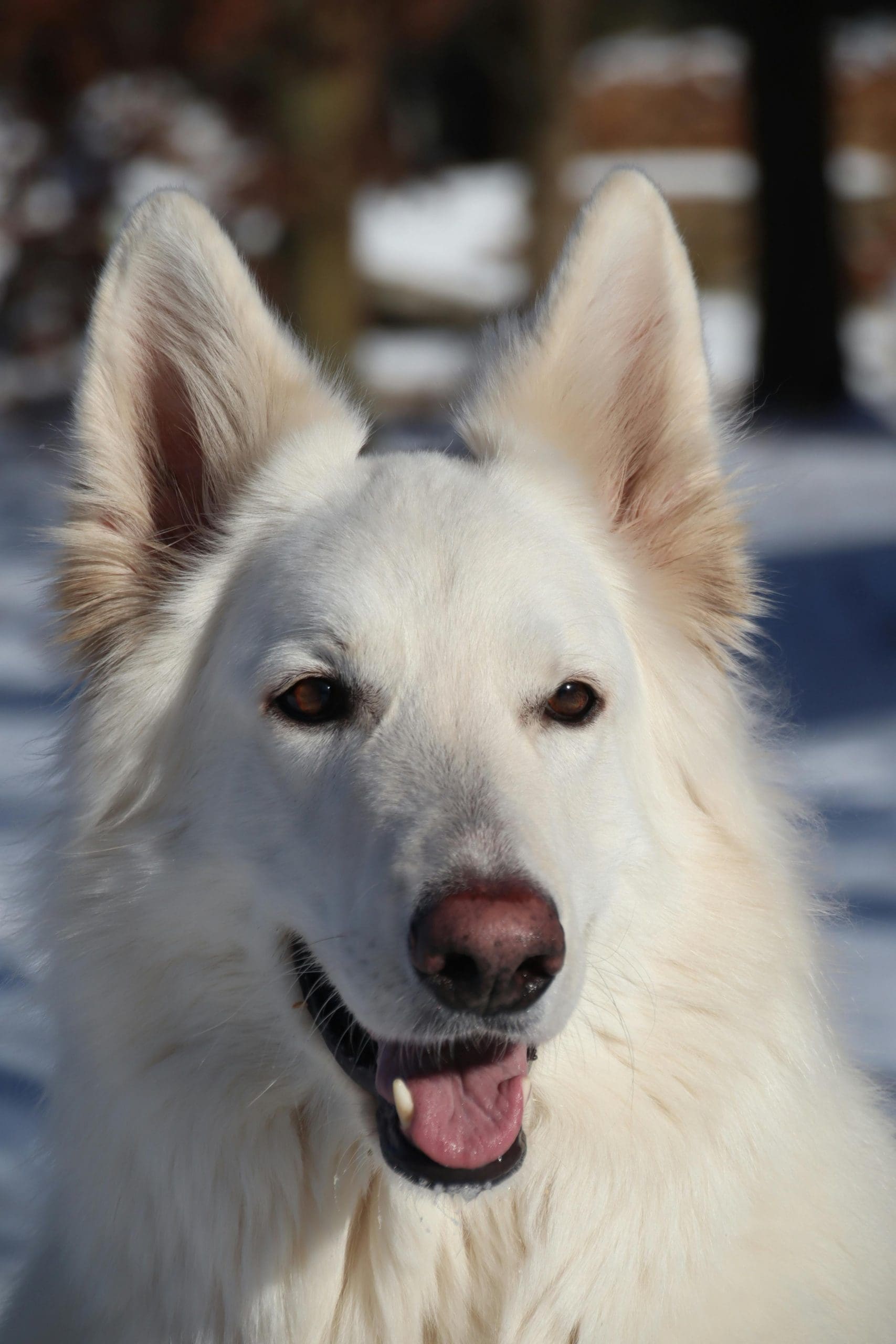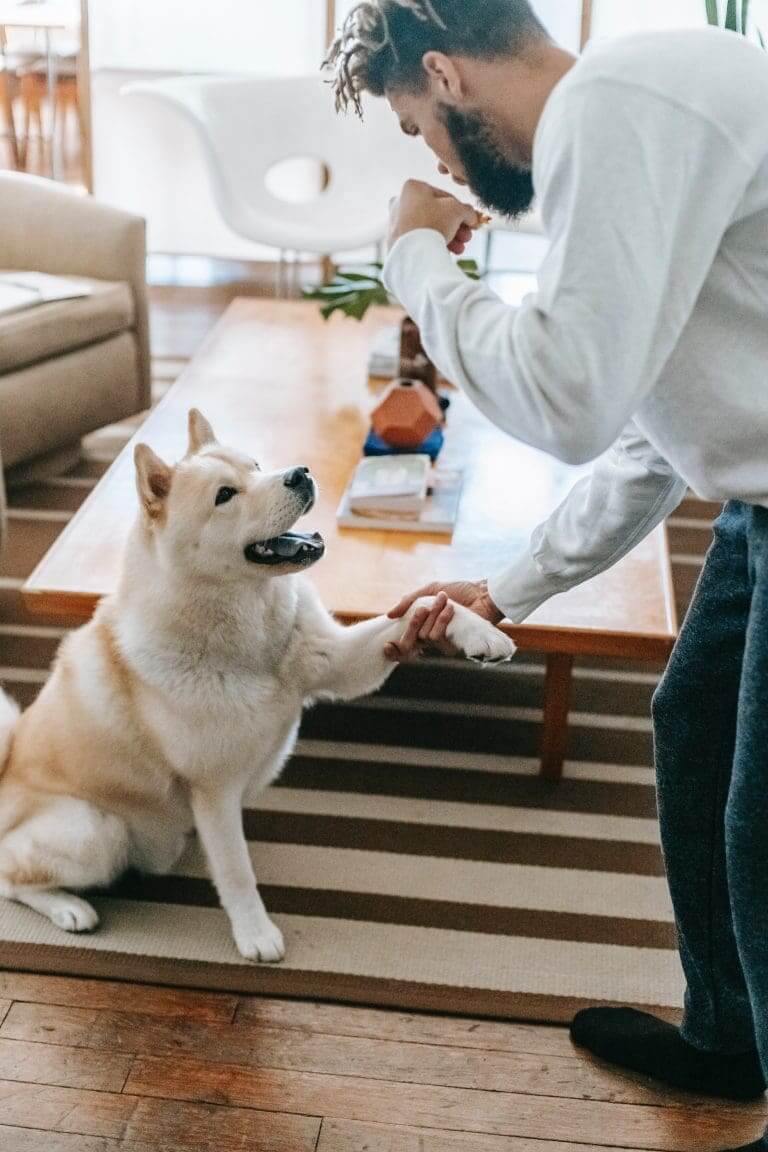What Smells Do Dogs Hate?
Post Date:
December 10, 2024
(Date Last Modified: November 13, 2025)
Dogs rely on smell as a primary sense for exploring their environment, and different odors can trigger strong behavioral and physiological reactions.
Canine olfaction: how dogs smell
The canine nose is anatomically specialized for scent detection in ways that differ dramatically from humans. Dogs have up to 300 million olfactory receptors compared with about 6 million in humans [1].
Beyond receptor counts, the surface area of the olfactory epithelium in dogs can be roughly 170 cm² (26.4 in²) compared with about 10 cm² (1.6 in²) in humans, which increases odorant capture and discrimination [2].
Scent perception also includes memory and lateralization: some controlled studies report nostril lateralization biases near 60% in odor-sampling tasks, indicating that dogs may preferentially use one nostril during particular olfactory tasks [2]. Breed, age, health status and individual experience modify these baselines, so two dogs exposed to the same odor can respond very differently.
Why certain odors repel dogs
Aversion to some smells can be innate, learned, or a mix of both. Innate avoidance supports survival (for example, bitter or pungent cues that signal spoiled food or toxins), while conditioned avoidance develops when odors are paired with unpleasant events.
Chemical qualities that make smells repellent include high pungency, strong trigeminal activation (numbing, burning or irritation), and novelty; highly volatile compounds that stimulate both olfactory and trigeminal nerves are especially likely to provoke withdrawal or avoidance.
Habituation reduces response to nonthreatening odors over time; habituation to repeated neutral odors may appear after approximately 10 exposures in laboratory settings, so a deterrent that is never varied can lose effectiveness [3].
Common household smells dogs hate
Everyday odors that commonly trigger avoidance or discomfort include citrus, vinegar, strong ammonias, bleach and tobacco or heavy cooking smoke. These are listed here with typical contexts and why dogs react:
- Citrus (lemon, orange, grapefruit) and vinegar — often sharp, acidic and novel to dogs; citrus essential oils can be both repellent and, in concentrated form, irritating.
- Ammonia, bleach and strong cleaning agents — they activate irritant receptors and can be aversive at commonly used concentrations.
- Cigarette and tobacco smoke and heavy cooking fumes — persistent odors that can be uncomfortable and associate with negative respiratory sensations.
Household cleaning often involves concentrated chemicals; for example, household bleach is typically used at a 1:10 dilution for heavy disinfection, which increases airborne irritant levels and can produce discomfort or respiratory signs in sensitive dogs [4].
Industrial and synthetic chemical odors
Manufactured solvents, paint fumes, gasoline and aerosol propellants generate volatile organic compounds (VOCs) that are potent both olfactorily and as irritants. High volatility and the capacity to stimulate trigeminal nerve endings promote immediate avoidance behaviors.
Pesticides, rodenticides and concentrated industrial cleaners often have both an odor component and toxicologic risk; regulatory guidance emphasizes minimizing animal exposure and ventilating treated areas promptly to reduce inhalation or dermal contact [4].
When dogs encounter very strong chemical fumes, responses range from head-turning and withdrawal to coughing, sneezing and eye irritation, depending on dose and duration.
Plants and natural scents dogs avoid
Several botanical scents are commonly reported to deter dogs: citronella, eucalyptus, rue and some strong mints often smell intensely bitter, camphoraceous or pungent to canines. Live plants release a different bouquet than crushed foliage or distilled essential extracts; mechanical damage concentrates volatiles and can make a plant far more repellent.
Gardeners use this intentionally in some repellents, but potency varies with species and preparation: crushed leaves tend to produce a short, strong signal, while essential oil concentrates are longer-lasting and more intense — and therefore more likely to cause irritation if misapplied.
Essential oils and perfumed products: repellency versus toxicity
Essential oils such as peppermint, eucalyptus and citrus can be deterrent at low concentrations, but concentrated applications carry risk. Clinical reports show tea tree oil can cause signs in dogs after topical doses estimated near 1 mL/kg in some small-breed cases, so repellency must be balanced against toxicity risk [5].
Safe approaches emphasize low concentrations, limited skin contact and avoiding ingestion; many veterinary sources recommend against direct application of undiluted essential oils to animals and advise consulting a veterinarian before using oils as deterrents.
Dilution guidelines and permitted uses differ between oils, and veterinary advice will vary by patient weight, age and medical history.
Human-related odors dogs find unpleasant
Strong perfumes, colognes and aftershaves often concentrate volatile aromatic molecules that dogs may dislike or find confusing; these odors can interfere with social signals and grooming behaviors. Scented topical medications, liniments and heavily perfumed laundry products can also cause avoidance or stress when the scent becomes associated with handling or unpleasant experiences.
Because dogs form scent associations quickly, a caregiver who consistently smells of a noxious chemical or treatment may provoke avoidance even when benign interactions follow. Awareness of these associations is important for socialization and handling strategies.
Using odors as deterrents: practical strategies and limits
When used ethically, scent deterrents can reduce unwanted behavior or protect areas of the home or garden. Commercial repellents are formulated to balance efficacy and safety; DIY scent deterrents can work short term but carry higher risks of irritation or overdose if concentrated oils or solvents are used.
Practically, pair odor deterrents with positive training so the dog learns an alternative behavior rather than only avoidance. Professional guidance often recommends rotating deterrent scents every 7 to 14 days to reduce habituation and maintain effectiveness [3].
Placement matters: keep repellents out of reach, avoid application on items dogs may chew, and ensure adequate ventilation after treating an area.
Safety, individual differences, myths and research gaps
Toxicity risks vary by compound, dose and route of exposure; symptoms of chemical exposure in dogs include drooling, vomiting, tremors, ataxia and respiratory distress, and severe cases require immediate veterinary attention and decontamination guidance from a clinic or poison control resource [4].
Individual, breed and experience-driven differences mean that no scent will reliably repel every dog: what deters one animal may be neutral or attractive to another. Common myths include the assumptions that all citrus is safe in large amounts or that “natural” essential oils are harmless; in truth, some botanicals are toxic at modest doses [5].
Research gaps remain in precise detection thresholds across breeds and ages, long-term effects of repeated low-level exposure to deterrent scents, and standardized protocols for safe use of plant extracts around companion animals.
| Odor | Typical source | Common dog response | Notes |
|---|---|---|---|
| Citrus | Fruit peels, cleaners | Avoidance, face-turning | Repellent at low conc.; irritating if concentrated |
| Bleach/ammonia | Cleaning products | Withdrawal, coughing | Avoid heavy exposure; ventilate |
| Citronella/eucalyptus | Plants, oils | Avoidance, shaking head | Effective as deterrent; some oils toxic if misused |
| Tobacco smoke | Smoking, secondhand smoke | Respiratory irritation, avoidance | Chronic exposure linked to health risks |
Emergency response and veterinary care
If a dog has inhaled or ingested a concentrated chemical, inducing vomiting is generally only advised within the first 1–2 hours after ingestion and only under veterinary direction because risks and indications vary by substance [1].
Activated charcoal is commonly used for acute oral poisonings and is typically dosed in the range of 1–5 g/kg as a single oral dose, with the exact amount and repeat dosing determined by the toxin and the treating clinician [5].
Supportive care for chemical exposure may include fluid therapy; a routine maintenance rate often used in clinical practice is about 60 mL/kg/day (with commonly accepted ranges from roughly 40–80 mL/kg/day depending on condition and ongoing losses) expressed as mL/kg/day for dosing calculations [1].
Onset of clinical signs from topical or inhaled irritants is variable; short-acting irritant exposures often produce signs within 30 minutes to 6 hours, whereas some systemic toxicants may show delayed signs beyond 12 hours, so veterinary evaluation timelines depend on the suspected agent [5].
Practical mitigation: application, timing and environment
When using scent deterrents for behavior management, limit direct skin contact and avoid applying repellents to surfaces the dog will lick or chew; keep treated windows or doors ventilated until odors are perceptually reduced for humans, and restrict animal access to the treated area for at least the short term recommended on product labels [4].
Commercially formulated repellents will include manufacturer instructions; for homemade approaches, remember that essential oil concentrates can be orders of magnitude stronger than crushed foliage and can cause irritation or toxicity if a dog ingests more than a small milliliter quantity, so limit concentrations and exposure time [5].
Rotate scents periodically to reduce habituation: many behaviorists recommend changing the deterrent stimulus every 7–14 days or sooner if the dog’s avoidance begins to decline, and always combine odor cues with trained alternative behaviors for more sustainable change [3].
Welfare, ethics and when to seek professional help
Using odors as a sole strategy to control behavior can create stress if the animal has no safe alternative; if avoidance is severe or interferes with feeding, elimination or social interactions, consult a certified animal behaviorist or veterinarian, as clinical intervention is often indicated when problem behavior occurs more than several times per day or leads to weight loss or injury [3].
For suspected toxic exposures, contact a veterinary clinic or an animal poison control center promptly; many poison control services operate 24 hours and can provide immediate guidance based on the dog’s weight, the product concentration and the estimated ingested volume [5].
Ethically, deterrents should not cause pain or prolonged distress: avoid combinations of irritant chemicals, do not trap animals into treated zones, and prioritize nonchemical management strategies when possible.
Research gaps and responsible use
Key gaps include standardized sensitivity thresholds across breeds and ages, longitudinal data on repeated low-level exposure to deterrent scents, and comparative effectiveness trials of odor-based repellents versus behavioral training; addressing these gaps requires controlled studies with transparent reporting and clinical endpoints [2].
Until more definitive data exist, the precautionary approach is to minimize concentrated volatile exposures, follow veterinary advice for clinical issues, and use scent deterrents as one tool within a broader, welfare-focused behavior plan rather than as a sole or punitive measure.






